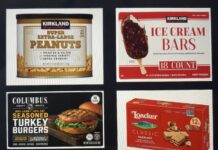When Renaldo Webb launched his dog food company PetPlate seven years ago, the odds were stacked against him as a Black man entering a market with little to no Black representation. Armed with knowledge, tenacity, and a genuinely good product, he’s managed to beat those odds.
With its simple mission to offer better food for dogs so they can live longer, healthier, happier lives, PetPlate has grown into a full-fledged dog food company that has delivered over 15 million meals and treats to dogs across the country. Webb sat down with theGrio recently to discuss PetPlate’s growing success, how he got started, and how his love of dogs propels him.
Webb was led to start PetPlate the way many inventors and creators are similarly inspired: he wanted to solve a personal need. An MIT grad with a degree in physics, Webb found himself in pet food factories for work, where he saw how a lot of standard dog food is made. Around the same time, Webb had also adopted his first dog, Winston, who had a very sensitive stomach.
“I couldn’t find anything in the market that would work for him,” Webb said, adding, “One day, I just had the epiphany that maybe the ingredients you see [while in the pet food factories] are the cause and he needs something a little bit fresher.”
Webb said this epiphany sent him on a trajectory of doing “crazy research” on freshly cooked human-grade pet food. Soon after, Webb devised the foundation for PetPlate’s recipe and launched the brand, serving as not only its founder but also as chef and delivery man for the business. He recalls early on having to ride around New York City, where he was based, on a bicycle to make deliveries and get the product into the bowls of the city’s dogs.
“We got a lot of really great reception early on when I started the business,” Webb said.
A chance opportunity to pitch his company to “Shark Tank” producers also didn’t hurt. During New York Tech Day in 2016, there just so happened to be a “Shark Tank” event where exhibitors at the conference could pitch an idea to the show’s producers. Webb seized the opportunity and was offered the chance to go to Los Angeles and appear on the show. While the sharks passed during the show, the exposure from the episode led to great success for PetPlate, so much so that “Shark Tank” did a special update episode.
“Now we’re nationwide, shipping to tens of thousands of pet parents across the US. It’s just been a really fun journey,” Webb said.
Those multitudes of pet parents now include this reporter and her pooch, since Webb offered us an opportunity to try PetPlate for ourselves. The process of ordering the food was simple: On PetPlate’s site, I began by answering a few questions pertaining to my dog’s breed, diet, activity level, weight, and any health concerns I had. Based on my answers, I received recommendations for meals and treats. Once ordered, a blue PetPlate box arrived at my front door about a week later, and I began the test-tasting process with my dog — an admittedly tough food critic who forgoes anything deemed “healthy.”
A first run of the food didn’t go over so well with my finicky eater; he refused a treat and took his time warming up to the chicken and pork meals. To get my dog on board with a new brand, I followed some advice from Webb. He advises slowly mixing the new meals in with what your dog is already used to eating and, over time, increasing the amount till your pooch is eating the complete meal. He also advises picking the bowl up after 30 minutes if left untouched and trying again later, a method that proved most successful for my dog. Two weeks later, he’s licking his bowl clean and running to his bed to consume his treats (a sign he loves it).
Before you roll your eyes thinking made-to-order freshly cooked human-grade delivery dog food is just another fad, I have to say, the reduction in my dog’s gas alone (which could previously clear a room) is enough for me to never return to the dog food aisle again. In other words, the health benefits become immediately apparent.
Webb said 60% of dogs in America are overweight, and many dogs aren’t reaching their fullest life capacity, all problems that could be solved through a personalized diet, as PetPlate offers. Webb hopes his meals will help extend a dog’s life by at least two human years (14 in dog years).
The benefits are clearly resonating with dog owners; currently, PetPlate is on top of the made-to-order human-grade pet food market. According to Consumer Ratings, PetPlate ranks the highest with consumers among Webb’s biggest competitors.
Considering that both PetPlate and Webb were outliers in the market and that eight out of ten Black businesses fail, its success is noteworthy. It hasn’t been all a walk in the park, though. Like many Black entrepreneurs, Webb experienced challenges raising funding, and steep learning curves when it came to creating and leading his first-ever team.
“Every stage of the company, going from zero to one million, from one to five or from five to ten, required different skill sets,” Webb said, adding, “That’s been the most surprising thing for me; how much I’ve enjoyed growing and learning and developing as the company has developed.”
He’s also very aware of how hard and rare it is for Black businesses to succeed, something he hopes will change with the changing landscape of America. One of the main reasons Black businesses fail is because of an inability to scale properly. Another top reason is the lack of proper funding.
“I think there’s a huge economic opportunity tied to the changing landscape of America, and you should see a lot more capital going into the folks that are going to make the consumer products for the future, where the U.S. is getting browner,” he said.
Webb added that while he suspects there will be more investors pursuing companies by founders of color, he hopes to see people of color being the ones investing those funds.
“You need to make sure that the folks deploying those dollars somehow, way, shape or form resemble the entrepreneurs they would be going to,” he said.
His advice to Black entrepreneurs like himself is to start small and simple — and to stay realistic.
“I think so many times people are able to come up with amazing ideas, but it’s really not in the ideas that make the entrepreneur; it’s in the execution. So I think just being very relentless about the execution and not overcomplicating it,” he said.
When Webb started, he was cooking out of his own apartment and giving samples to friends to try. He waited until word began to spread before he felt more comfortable approaching people he didn’t know and marketing at doggy daycares.
“All too often, people think that they need to be this huge success right out the jump, and it doesn’t work that way,” he explained, adding, “I think being real with yourself about the time and energy it’s going to take is really important — but not being afraid of putting in that time and energy.”
Webb said there can be 5000 reasons not to do something, but all it takes is finding the one reason to do something and the simple step that could move you forward.
“And then take that step,” he said.
Kay Wicker is a lifestyle writer for theGrio covering health, wellness, travel, beauty, fashion, and the myriad ways Black people live and enjoy their lives. She has previously created content for magazines, newspapers, and digital brands.
Source: TheGrio
Image: Instagram



































